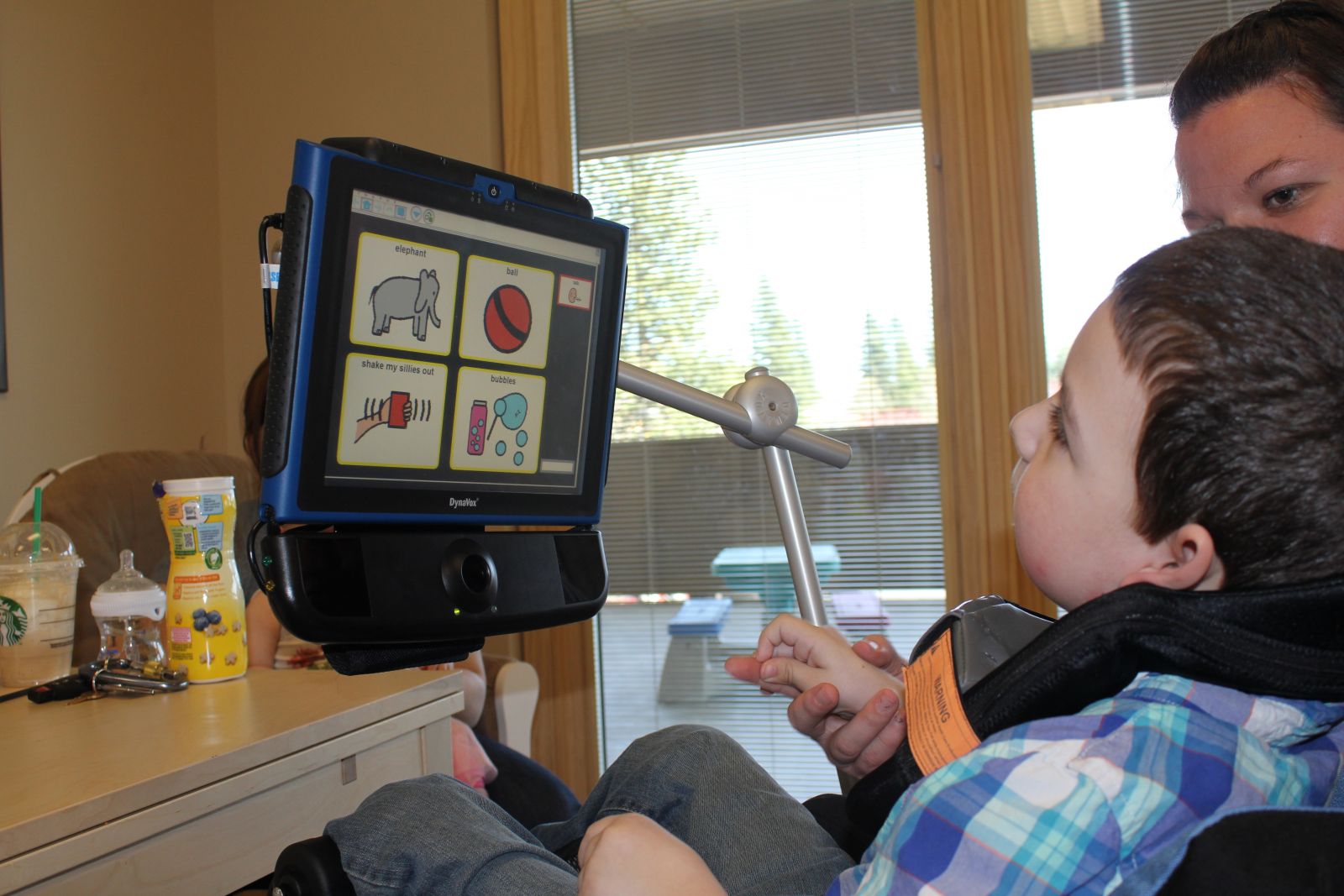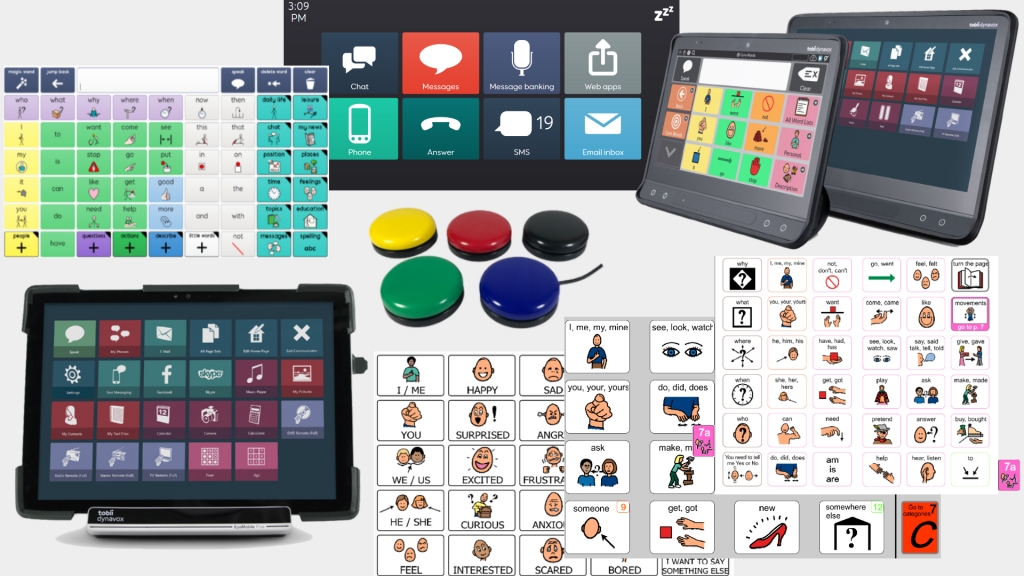
Introduction To Augmentative And Alternative Communication Book Pdf
Functional communication training or durable behavior change. In Ganz J. B., Simpson R. L. (Eds.), Augmentative and Alternative Communication Series: Interventions for Individuals with Autism Spectrum Disorder and Complex Communication Needs (pp. 129-160). Brookes. Google Scholar.. View my profile Sign out. I can access personal.

Augmentative And Alternative Communication Devices Amy Speech ZOHAL
AACP: Augmentative & Alternative Communication Profile: A Continuum of Learning Ages: 2-0 through adultTesting Time: 60 to 90 minutes This profile includes everything you need to assess communicative competence and design intervention for the ever-changing needs of people who use AAC sy.

Augmentative and Alternative Communication Profile AurorahasErickson
Purpose of Review Neurodevelopmental disorders lead, many times, to serious communication problems that also affect their quality of life. Therefore, it is essential to undertake rehabilitation projects aimed at promoting communication through the use of alternative and augmentative communication strategies and tools. The main objective of this systematic review based on existing scientific.

Augmentative and Alternative Communication with EdTech ViewSonic Library
Effects of interventions that include aided augmentative and alternative communication input on the communication of individuals with complex communication needs: A meta-analysis. Journal of Speech, Language, and Hearing Research , 61(7), 1743-1765.
Augmentative and Alternative Communication Profile AurorahasErickson
What is AAC? Augmentative and Alternative Communication simply means communicating in a form other than speech. The goal of an AAC system is to give an individual effective communication to maximize quality of life. There are various types of AAC that can be chosen depending on the individual's skill level and communication needs.

Augmentative/ Alternative Communication (AAC) > Center for Pediatric
It has two functions: (1) Measures subjective, functional skills for developing communicative competence using AAC systems, retests skill level, and monitors progress, and (2) Guides intervention to help clients who use any type of speech-generating AAC system.

2 Alternative augmentative communication (AAC). Source University of
Profile results guide intervention and instruction by providing a systematic way to meaure and document progress. Test Set includes: Examiner's Manual, 15 Profile Forms MORE ITEMS FROM Augmentative & Alternative Communication

Augmentative and Alternative Communication with EdTech ViewSonic Library
The authors conducted a systematic review of the literature, including studies that used a single-case design (SCD) and taught augmentative and alternative communication (AAC) use to adults with co.

ytrfdsf
What is augmentative and alternative communication? AAC is one way that a person may communicate without talking. Augmentative means to add to someone's speech. Alternative means to be used instead of speech. You may have seen someone in your life or on TV using a tablet or different device to type or even speak their words for them.

Augmentative alternative communication profile a continuum of learning
Since the early 1970's, research on providing access to augmentative and alternative communication (AAC) devices for those with severe physical impairment has grown dramatically with an expanded reach for considering an increasing number of individuals from diverse cultural and linguistic backgrounds, advocating for AAC acceptance, and utilizing an expanding array of devices for AAC access.

Augmentative and Alternative Communication Tattletales of a Speech
The profile of the individual including: vision, hearing, sensory-motor, motivation, cognitive, linguistic, literacy skills, and current modes of communication. Augmentative and Alternative Communication: Supporting Children & Adults with Complex Communication Needs 4th Edition. Baltimore: Paul H. Brookes Publishing.

Educational Technology Augmentative and Alternative Communication
The Augmentative Communication Program at Stanford Medicine Children's Health provides comprehensive AAC evaluations and short-term treatment for children and young adults who have conditions that make it difficult to use spoken language. If your child has difficulty with communication, he or she can use augmentative and alternative.

(PDF) Effectiveness of Different Types of Augmentative and Alternative
Amyotrophic lateral sclerosis (ALS) is a rapidly progressive neuromuscular disease of unknown cause and no cure. Initial characteristics vary, with some individuals experiencing bulbar (brainstem) symptoms involving speech and swallowing, others who experience initial spinal symptoms involving the limbs, and still others *Corresponding author.

Augmentative and Alternative Communication (AAC) Rehab Solutions Adelaide
Augmentative and alternative communication (AAC) is an area of clinical practice that supplements or compensates for impairments in speech-language production and/or comprehension, including spoken and written modes of communication.

Augmentative & Alternative Communication Supporting Children & Adults
As the official journal of the International Society for Augmentative and Alternative Communication (ISAAC), Augmentative and Alternative Communication (AAC) publishes scientific articles related to the field of augmentative and alternative communication (AAC) that report research concerning assessment, treatment, rehabilitation, and education of people who use or have the potential to use AAC.

1000+ images about Augmentative and Alternative Communication on
Augmentative & Alternative Communication Profile (AACP) AACP Profile Forms (15) $40.00 This profile includes everything you need to assess communicative competence and design intervention for the ever-changing needs of people who use AAC systems. The Profile has two functions: